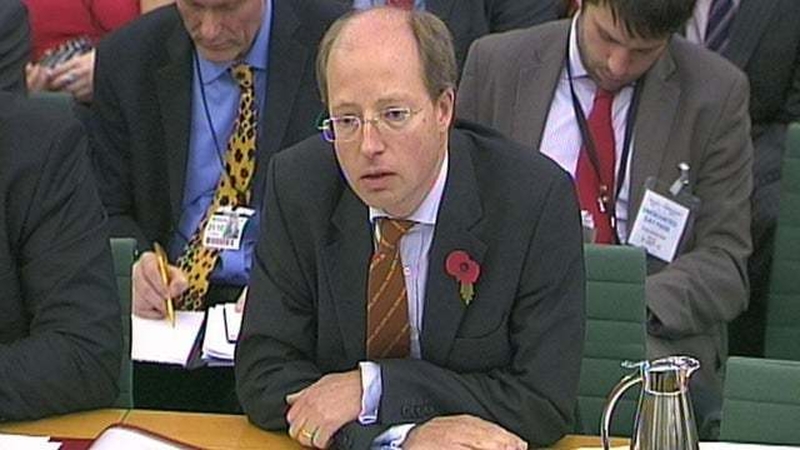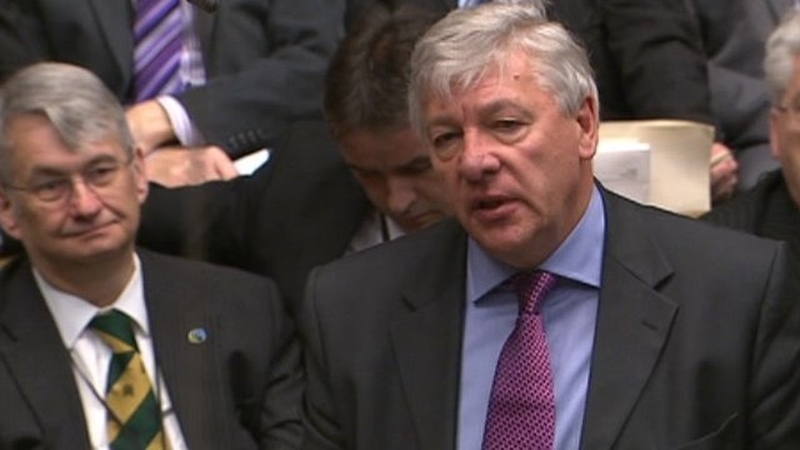If top civil servant Rutnam wins in court it would be a victory for bureaucracy over democracy
It’s easy to see why Labour’s front bench has been quick to take up the political cudgels against the right-wing Conservative Home Secretary Priti Patel over her unseemly row with her previous top civil servant Sir Philip Rutnam. Rutnam has accused Patel of forcing him out of office by bullying, lying and briefing against him. He is promising to take legal action against the government.
The most serious criticism of Priti Patel and the Conservative Government is Rutnam, a highly paid official, was allowed to stay in office for so long
However, the Labour Party should take a step back and take a close look at Rutnam’s record. As a member of the Transport Select Committee, I viewed with horror the chaos, cost overruns and general maladministration when he was the top civil servant at the Department for Transport. He started in 2012 by presiding over the botched re-franchising of the West Coast Main Line. Richard Branson’s Virgin Trains, having lost the franchise, won a legal action which forced the government to accept officials had made ‘deeply regrettable and completely unacceptable mistakes’. More costly was the huge overrun of the £38bn improvement programme for the rail network. This meant that large parts of the electrification programme were cancelled. His role in the ballooning cost of HS2 should not be forgotten.
This one-time investment banker (Morgan Stanley) then moved to apply his expensive talents as the Permanent Secretary at the Home Office. He oversaw the disgrace of the Windrush scandal. The Home Office paid out £21m after mistakenly detaining more than 850 people. He and his officials effectively got previous Home Secretary Amber Rudd sacked. She had been briefed by them that the Home Office did not have targets for removing Jamaicans. In good faith she relayed this to a House of Commons select committee. When it was shown not to be true, she, not Rutnam, lost her job.

The most serious criticism of Priti Patel and the Conservative Government is that this highly paid official was allowed to stay in office for so long. Jamaicans, the travelling public and indeed the whole country should be delighted he’s looking for work elsewhere.
Labour should also remember its recent and not so recent history. Labour’s Shadow Chancellor John McDonnell, who has called for the suspension of Patel and supported Rutnam during the general election, was calling for a purge of economists at the Treasury and the Bank of England. He was doing this because he thought they would be a barrier to implementing Labour’s manifesto. Their support and belief in austerity would have made it difficult for them to enthusiastically support a large increase in expenditure.
John McDonnell and Jeremy Corbyn, long term supporters of Tony Benn, will have had in mind the latter's experience in the 1970s as Secretary of State for Industry. The Permanent Secretary at the Department of Industry, Anthony Part, said to Benn on his first day in office, "I take it you are not going to implement the manifesto." When Benn told him that was exactly what he intended to do Part refused to implement his decisions, undermined him and eventually got him moved to a different department.
There are two serious misconceptions about the Civil Service:
One, that it is a Rolls Royce like administrative organisation. For anybody to think this, they must be unfamiliar with at least one of those things.
Secondly, that it is politically neutral. It is certainly party-political neutral (and thankfully not corrupt) but it has politics that can easily be in conflict with the elected government. The politics of the Treasury are to privatise as much of the economy as possible and the Foreign Office explicitly and the rest of the Civil Service implicitly are strongly in favour of our membership of the European Union. The Civil Service being permanent, as opposed to temporary ministers, tend to prevail in the long term.

Before every general election, the Civil Service discuss and work out provisional plans about how to implement the different party manifestos. This principle was forgotten before the EU referendum, they did not write a sentence as to how they would administer and provide draft legislation for a decision to leave the EU.
I have no idea, the facts simply have not come out, whether or not Priti Patel broke the ministerial code of conduct but I do know Labour is backing the wrong horse again. There are resonances in this debate of the EU referendum. The metropolitan elite are recognising Rutnam as one of their own and are coming to his aid against the rights of democratically elected Ministers. A win for Rutnam would be a victory for bureaucracy over democracy. A victory for the status quo over improvements in the current system.
Labour should not be on the wrong side again.

Graham Stringer MP
Graham Stringer is an occasional columnist for Manchester Confidential. He is the Labour Member of Parliament for Blackley and Broughton with a majority of 14,402 after the 2019 General Election. He was elected to Parliament in 1997. Until 1999 he was on the Environment, Transport and Regional Affairs select committee, then was a Labour Government whip and subsequently a member of the Transport Select Committee in the last years of Labour Government. Prior to parliament he was the Leader of Manchester City Council from 1984-1996. He is credited for being a principal agent in the return of city confidence and Manchester's regeneration.















